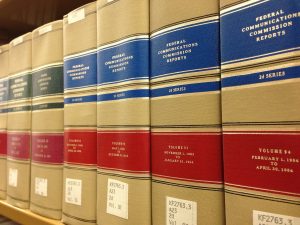Quantum Privacy Rights: Future Data Standards
Welcome to the future of data privacy. As technology continues to advance at an exponential rate, the need to protect our personal information has become paramount. With the emergence of quantum computing, traditional methods of data encryption may soon be rendered obsolete. This has sparked a new conversation about privacy rights and the need for future data standards. In this article, we will explore the concepts of quantum privacy rights and how they may shape the future of data privacy. 
What is Quantum Computing?
Quantum computing is a revolutionary technology that harnesses the principles of quantum mechanics to perform complex computations at an unprecedented speed. Unlike traditional computers that use binary bits (0s and 1s) to store and process information, quantum computers use quantum bits or qubits. These qubits can exist in multiple states at the same time, allowing for massive parallel processing. This means that quantum computers have the potential to solve problems that are currently impossible for classical computers to handle.
The Threat to Data Security
While quantum computing offers immense potential for advancements in various fields, it also poses a significant threat to data security. The traditional methods of encryption that we rely on today, such as RSA and AES, are based on long-standing mathematical algorithms that would be no match for the brute computational power of quantum computers. This means that any data encrypted using these methods could be easily decrypted by a quantum computer, putting sensitive information at risk.
Privacy Rights in the Quantum Era
As quantum computing becomes more advanced and readily available, the protection of our personal data will become a critical concern. This raises the question: do we have the right to privacy in the quantum era?
The simple answer is yes. The right to privacy is a fundamental human right that is recognized and protected by various international laws and treaties. However, the emergence of quantum computing demands a re-evaluation of our current data privacy standards and whether they are still adequate in protecting our personal information.
Challenges in Defining Privacy Rights in the Quantum Era
One of the significant challenges in defining privacy rights in the quantum era is the uncertainty surrounding the capabilities of quantum computers. While experts predict that quantum computers will be able to break traditional encryption methods in the next decade, the exact timeline and capabilities are still unknown. This makes it challenging to establish concrete privacy standards based on future assumptions.
Another challenge is the international nature of data. With data stored and transferred across borders, it is crucial to establish global standards that protect individuals from any potential privacy breaches. This requires collaboration and cooperation between governments, organizations, and individuals.
Developing Quantum-Safe Data Standards
As the threat of quantum computing looms, there is an urgent need to develop quantum-safe data standards. These standards must be able to withstand the computational power of quantum computers and protect our personal information. Luckily, work has already begun on developing quantum-resistant encryption methods, such as lattice-based cryptography and code-based cryptography. However, implementing these standards will require a significant upheaval of our current data infrastructure.
The Role of Google in Quantum Privacy
As the world’s leading search engine and technology giant, Google has a significant role to play in shaping future data standards. They have been at the forefront of quantum computing research and have recently announced the creation of the Quantum AI Campus, which will serve as a hub for quantum computing research and development. Google has also made significant strides in developing quantum-safe encryption methods, such as the New Hope algorithm.
The Google Quantum AI Community
In addition to their own research, Google has also been actively engaging with the quantum computing community to drive advancements in quantum-safe data standards. They have launched initiatives such as the Quantum AI Community, which brings together experts from various fields to collaborate and share knowledge on quantum computing research.
The Bottom Line
The emergence of quantum computing is a game-changer, and it demands a re-evaluation of our current data privacy standards. While it poses a significant threat to data security, it also presents an opportunity to strengthen our privacy rights and develop quantum-safe data standards. As we move towards a more advanced and interconnected world, it is crucial that we stay ahead of the curve and proactively address any potential privacy concerns.
The future of data privacy is in our hands, and it is vital that we work together to establish robust data standards that will protect our personal information in the quantum era.








